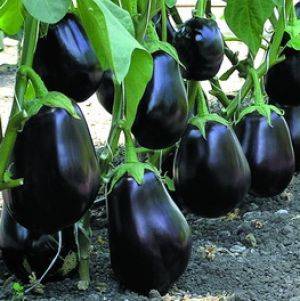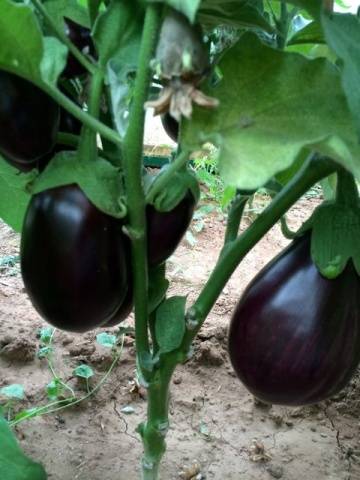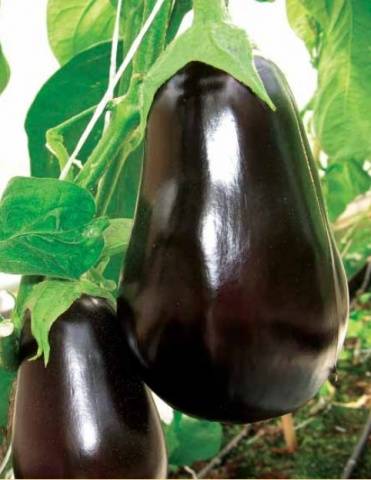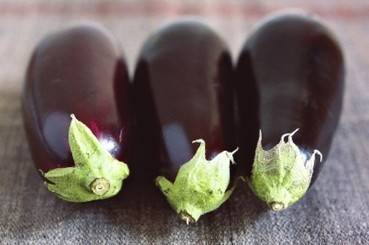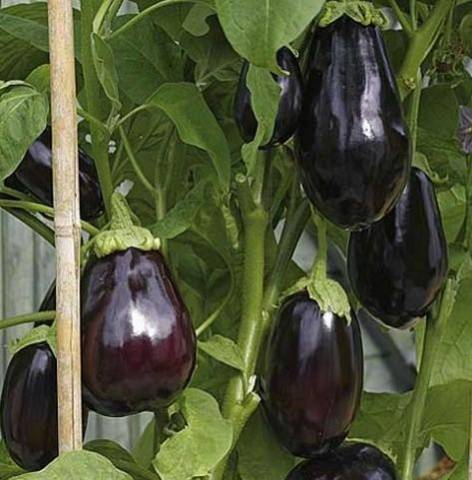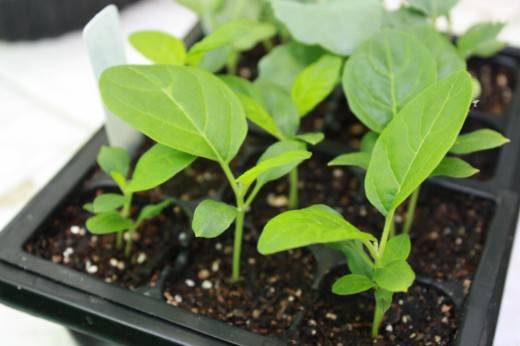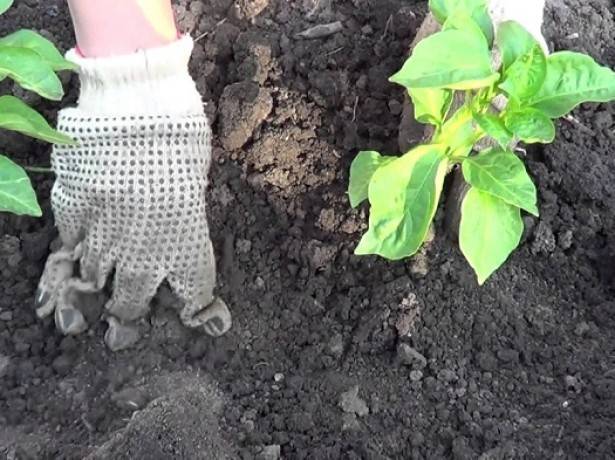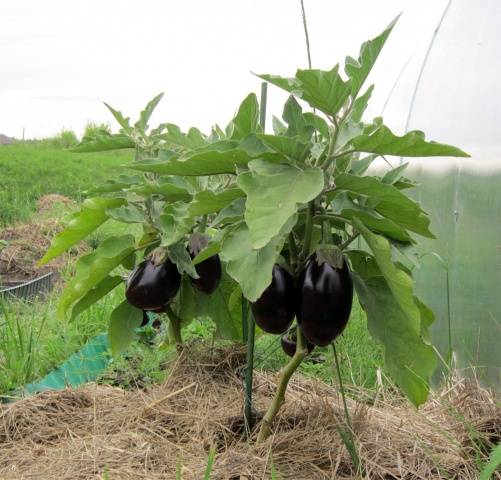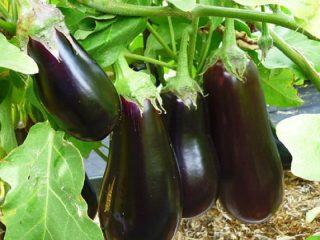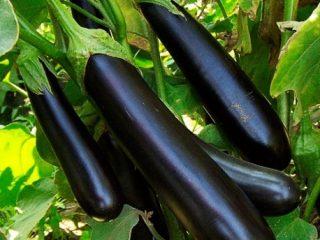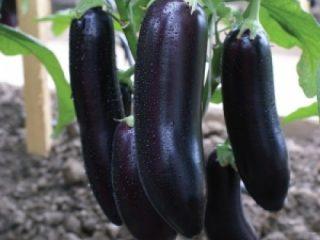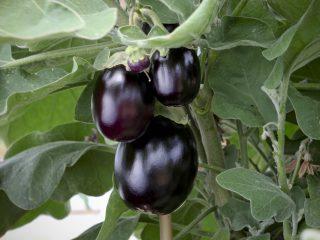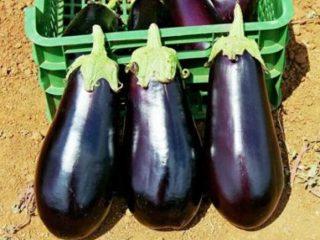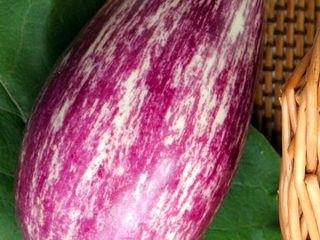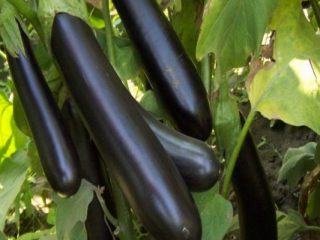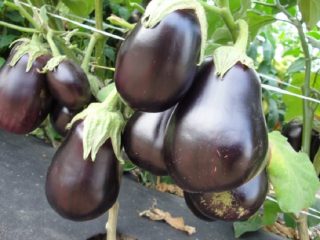Eggplants appeared here in the 15th century, although in their homeland, India, they were popular long before our era. These tasty and healthy vegetables quickly gained popularity in our area. Interestingly, the first eggplants were white and yellow. But in the future, experienced breeders were able to develop not only fruits of various colors (purple, red, green, orange, dark purple, striped), but also various shapes.
Eggplants are very demanding in terms of temperature and light conditions. Therefore, in Russia they can grow only in the southern regions. But even here, breeders tried hard and developed varieties suitable for cold climates.
Eggplants are valued for their beneficial properties. They are deservedly considered a dietary product. Vegetables contain fiber, potassium, calcium, pectin, iron and phosphorus. Thanks to fiber, they help remove toxins and excess fluid from the body. And potassium helps break down cholesterol plaques in blood vessels. For this they are loved and appreciated all over the world.
Indeed, not everyone can grow good eggplants. But, if you choose the right variety and listen to the advice on growing it, then everything will definitely work out.
Let's consider a variety ideal for cold regions - Vikar eggplants. We will also learn how to grow them and hear recommendations from those who have already tried this variety in practice.
Characteristics of the variety
"Vikar" is a cold-resistant variety that easily tolerates temperature changes. Suitable for growing in spring and summer.
Eggplants can be grown in open ground and in greenhouses. They will bear fruit better, of course, in greenhouses, from 5 to 7 kg per m2. The variety is early ripening; 100–115 days will pass from seed germination to the appearance of the first fruits.
The weight of eggplants can be about 200 g, length - up to 20 cm. The skin is light purple, matte and smooth. The pulp is light green in color and has a dense structure. There is no bitterness. The shape of the fruit is pear-shaped, slightly rounded on top. There are no thorns on the cup, which makes harvesting much easier.
The fruits of the Vikar eggplant are used in cooking, for preservation and preparation of various dishes. Stores well when rolled up. Suitable for frying, stewing and baking in the oven. Eggplants can also be frozen. Easy to transport.
As you can see, this variety has excellent characteristics. The speed of ripening and yield of these eggplants is impressive. And the taste has never left anyone indifferent.
Growing and care
Sowing seedlings can begin as early as the end of February and until mid-May. Eggplants are slow to germinate, which is why they are planted so early.
- The soil should be prepared before sowing using peat and other fertilizers.
- Place the seeds in the soil 1.5 cm deep, sprinkle with soil and lightly compact.
- The box must be covered with film to protect moisture.
- Before germination begins, the room temperature should be at least +25 °C. And when the sprouts appear, you can gradually lower it to +20 °C, but not less than +18 °C.
You can start picking seedlings when 1–2 full leaves appear. A week before planting, the plants must begin to harden off. If this is not done, the sprouts simply will not withstand direct sunlight and temperature changes from day to night. The approximate time of planting is mid-May, when frosts are no longer dangerous.
The distance between seedlings should be 20–30 cm, and between rows – 50–60 cm. After planting, the soil should be sprayed with water, since eggplants love moisture. Further care of eggplants should include regular watering, fertilizing and loosening the soil. It is not necessary to tie up this variety, since the bush is low and holds its shape well.
Reviews
Let's sum it up
Eggplants are considered very fastidious heat-loving plants, and not everyone undertakes to grow them. But the Vikar eggplant variety is perfect for cold climates. It destroys all stereotypes and allows you to grow delicious homemade eggplants where any other variety would not survive.
